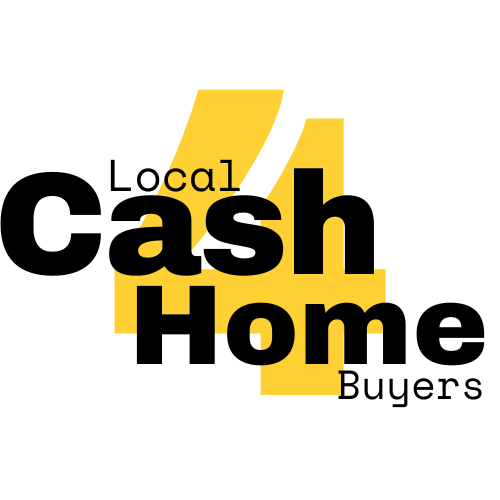When buying or selling a home, many people focus on the sale price but forget about closing costs. Closing costs are essential fees paid at the end of a real estate transaction. Whether you are a homebuyer or seller, understanding these costs can save money and prevent surprises.
At Local Cash 4 Home Buyers, we help homeowners and investors understand the process so they can make smart, informed decisions. This guide will break down closing costs, explain what to expect, and provide tips to minimize expenses.

1. What Are Closing Costs?
Closing costs are additional fees incurred during the final steps of buying or selling a home. These costs cover services like:
- Title insurance
- Appraisals
- Inspections
- Attorney fees
- Recording fees
Both buyers and sellers usually pay closing costs, though the amounts vary depending on the agreement and local regulations.
2. Closing Costs for Homebuyers
If you are buying a home, closing costs typically range between 2% to 5% of the home’s purchase price. Some common buyer fees include:
A. Loan-Related Fees
If you are taking a mortgage, you may pay:
- Origination fees: Charges for processing the loan
- Application fees: Paid to the lender to review your application
- Credit report fees: To check your credit history
B. Property Services Fees
These fees ensure the property is ready and legal to buy:
- Appraisal fee: Determines the home’s market value
- Inspection fee: Checks for structural or mechanical issues
- Survey fee: Confirms property boundaries
C. Title and Legal Fees
- Title insurance: Protects against claims on the property
- Recording fees: Paid to the local government to record the sale
- Attorney fees: Optional in some areas but recommended for guidance
D. Prepaid Costs
Some costs are paid upfront for the first year:
- Property taxes
- Homeowner’s insurance
- Interest on the mortgage
3. Closing Costs for Home Sellers
Sellers also have closing costs, usually about 1% to 3% of the home’s sale price. Common seller fees include:
A. Agent Commissions
- Typically 5% to 6% of the sale price split between the seller’s and buyer’s agents
- Cash sales may reduce or eliminate commission fees, making them attractive for sellers
B. Transfer Taxes and Recording Fees
- Paid to transfer property ownership officially
- Varies by state and local laws
C. Title and Legal Costs
- Sellers often pay for a portion of title insurance
- Legal fees may apply if an attorney is involved
D. Repairs and Negotiated Costs
- Some buyers may request repairs after inspection
- Seller may negotiate concessions or credits to close the deal
4. How Cash Buyers Can Reduce Closing Costs
Selling or buying with cash can significantly reduce closing costs because:
- No mortgage means no loan origination, application, or prepayment fees
- Transactions are often faster, reducing some administrative costs
- Cash buyers may negotiate certain fees, saving both buyers and sellers money
At Local Cash 4 Home Buyers, we offer fair cash offers, meaning sellers can save money on agent commissions and traditional fees.
5. Tips to Minimize Closing Costs
Even if you’re using a mortgage, you can reduce costs by:
- Shop for title insurance – Prices can vary between providers
- Negotiate fees with your lender or buyer – Sometimes fees are flexible
- Ask for seller concessions – Sellers can cover part of your closing costs
- Bundle services – Some lenders offer bundled appraisal and inspection services
- Compare local closing services – Legal and administrative fees can differ by location
For sellers, cash buyers are often the fastest way to save money, as the process skips many traditional steps.
6. Common Misconceptions About Closing Costs
- “Only buyers pay closing costs” – Not true. Sellers also have fees.
- “Closing costs are fixed” – Fees vary depending on location, home price, and negotiation.
- “Cash transactions have no closing costs” – Some minor fees may still apply, but they are usually much lower.
Knowing the truth helps you budget properly and avoid surprises.
7. Understanding the Closing Process
The closing process generally includes:
- Reviewing the contract – Both parties confirm terms
- Ordering title and inspections – Ensures property ownership and condition
- Signing documents – Final legal paperwork
- Paying closing costs – Fees are distributed to lenders, agents, and local authorities
- Transferring ownership – The buyer receives the keys, and the seller gets paid
With cash transactions, many steps are simplified, making the process faster and easier.
8. Why Knowledge of Closing Costs Matters
Understanding closing costs helps you:
- Budget accurately for buying or selling
- Avoid surprises at the final stage
- Negotiate better deals
- Decide if selling to a cash buyer is the right choice
Local Cash 4 Home Buyers ensures transparency, providing sellers fair cash offers with minimal fees and fast closings.
Closing costs are an essential part of any real estate transaction, whether buying or selling. They cover a range of fees from title insurance to inspections, legal services, and taxes. By understanding these costs and working with trusted local cash buyers like Local Cash 4 Home Buyers, both buyers and sellers can:
- Save money
- Close faster
- Reduce stress
- Avoid unexpected surprises
Key Takeaways:
- Buyers typically pay 2–5% of the home price in closing costs
- Sellers typically pay 1–3%, but cash transactions can reduce these costs
- Negotiation, shopping around, and cash offers can save significant money
- Knowledge is power: understanding fees ensures smarter real estate decisions
When selling your home or investing locally, Local Cash 4 Home Buyers provides fast, fair, and transparent solutions to make the process easier and profitable for everyone.

